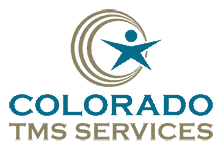Does TMS Therapy Hurt?
No, the most common side effect related to treatment was scalp discomfort during treatment sessions. This side effect was generally mild to moderate and occurred less frequently after the first week of treatment. If necessary, you can treat this discomfort with an over-the-counter analgesic. If these side effects persist, your doctor can temporarily reduce the strength of the magnetic field pulses being administered in order to make treatment more comfortable.
Less than 5% of patients treated with NeuroStar TMS Therapy discontinued treatment due to side effects. Many patients experience side effects from their medication, increasing the chance that they will stop taking them. The most common side effects for NeuroStar TMS reported during clinical trials were headache and scalp discomfort —generally mild to moderate—occurring less frequently after the first week of treatment.
Side Effects
Other side effects (occurring in ≥5% of people and twice the rate of placebo) included eye pain, toothache, muscle twitch, facial pain, and pain of the skin.
There is a rare risk of seizure associated with TMS therapy that occurs in <0.1% of people. There is no adverse effect on cognition.
People should notify their doctor if they experience worsening depression symptoms, signs, or symptoms of suicidal behavior and/or unusual behavior. Family members and support individuals should also be aware of the need to observe their loved ones and notify their treatment provider if symptoms worsen.
NeuroStar Advanced Therapy should not be used with people who have non-removable conductive metal or stimulator implants in or near the head or people who have active or inactive implants such as deep brain stimulators, cochlear implants, and vagus nerve stimulators.
What To Expect
Learn more about what you can expect during your consultation in the video below.

